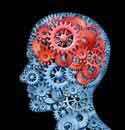Research News
-
Gunning for trouble
They’re young. They’ve been injured in an assault. They’ve landed in the ER. And nearly one in four of them has a gun. What happens next?
-
U-M researchers to study use of medical marijuana
A team of Medical School researchers recently received a four-year federal grant to study the impacts of marijuana on conditions related to cancer, glaucoma, pain.
-
To retire or not to retire?
Once upon a time, baby boomers were typecast as feckless do-nothings who cared only for sex, drugs, and rock ‘n’ roll. Lately, however, people born between 1946 and 1964 have taken on a new role: workaholic. According to a new U-M study, boomers now hitting retirement age are hanging onto their jobs like never before. In fact, some are forgetting to retire altogether.
-
Doctors save baby's life using 3D print technology
Video: U-M doctors made history recently when they used computer modeling and laser technology to design, fabricate, and implant a customized tracheal splint into a gravely ill infant. The groundbreaking procedure required emergency clearance from the Food and Drug Administration.
-
Exotic atoms hold clues to unsolved physics puzzle at the dawn of the universe
An international team of physicists has found the first direct evidence of pear-shaped nuclei in exotic atoms. The findings could advance the search for a new fundamental force in nature and explain why the Big Bang created more matter than antimatter—a pivotal imbalance in the history of, well, everything.
-
Depression and the body clock
Every cell in our bodies runs on a 24-hour clock, tuned to the night-day, light-dark cycles that have ruled us since the dawn of humanity. New research shows that clock may be broken in the brains of people with depression.
-
Cyber Attacks: A Clear and Present Danger?
Video: The U.S. Dept. of Defense recently blamed China’s military for cyber attacks on American systems. Just how do these attacks occur, what kind of damage can they create, and how can we combat them?
-
Brain scans reveal first objective measure of pain
Scientists have identified how much pain people feel by looking at images of their brains. The research may set the stage to objectively measure anxiety, depression, anger, and more.
-
'Mean Girls' at College: Social Whirl Derails Many
You’re not done with high school when you go to college, according to a new study of student culture. An in-depth look at the lives of young women shows the high school peer culture that divides students into homecoming queens, wannabes, and nerds thrives in college.








